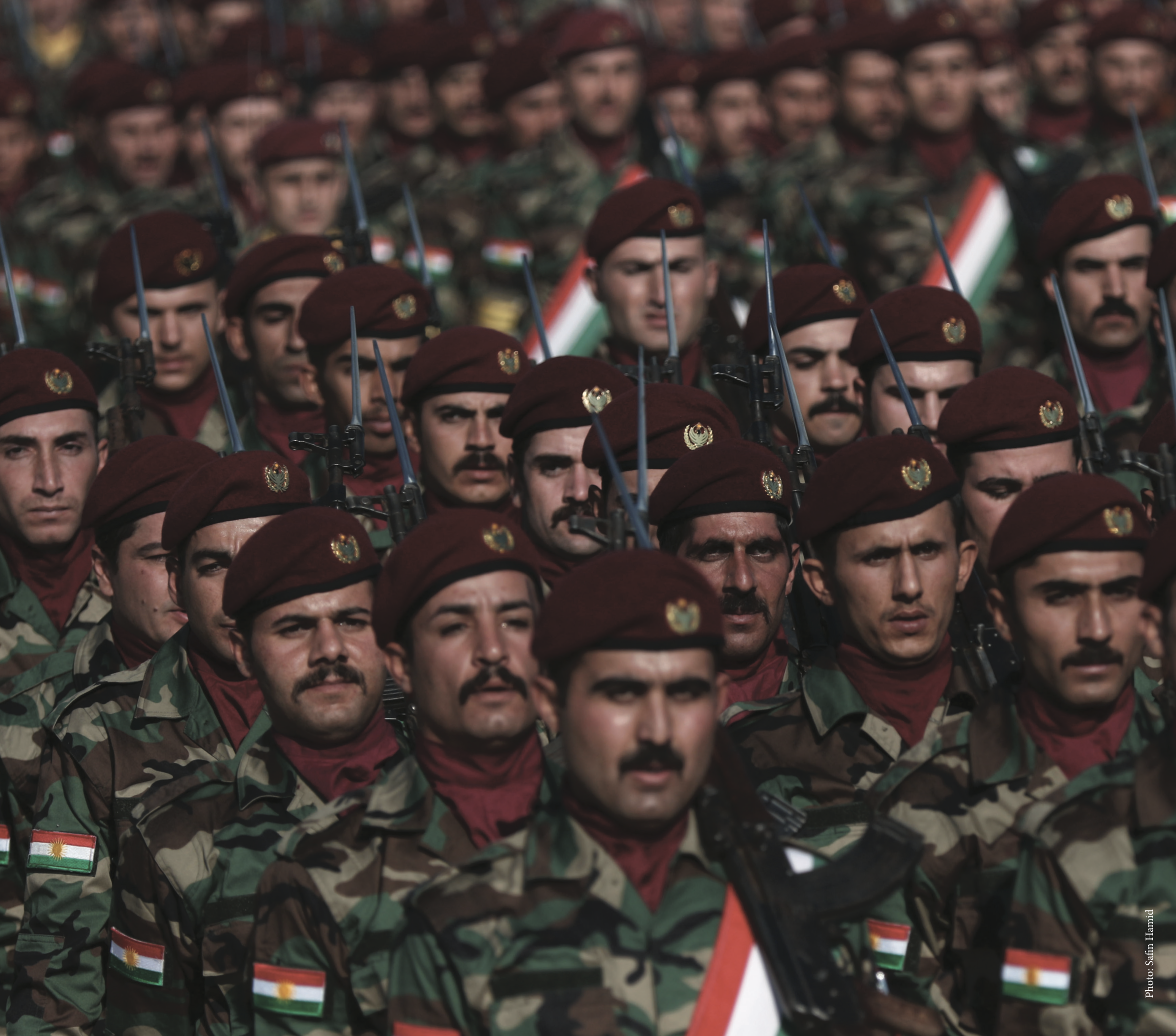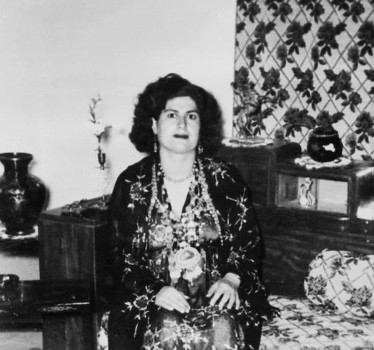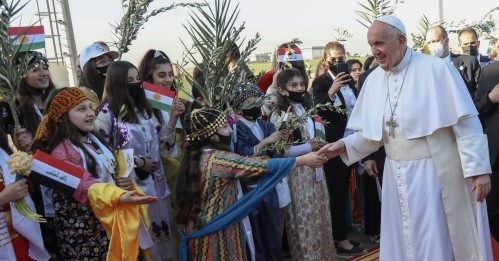I first met Khairi Hussein, a middle-aged peshmerga commander of average height with fearless eyes, during the operation to liberate Sinjar, which is home to many Yazidis. Even though he was a lieutenant, he always carried a rifle and wore his uniform, never removing it for a second, even when asleep.
Following the liberation of Sinjar from ISIS on August 3, 2016, I returned to the town to report on the aftermath. Hussein was the first person to take me on a tour of ISIS’s longest underground tunnel, a story that before that time had not been covered by local or international media. The 3-km tunnel had been used to supply by ISIS to supply bases throughout the city center and for protection. “ISIS forced Yazidi prisoners to build the tunnel to safeguard themselves from coalition air strikes," Khairi explained.
The tunnel triggered reactions across international media, prompting The Mirror to write that "the long tunnel of ISIS is only 100 meters away from the base of the Kurdish peshmerga forces.”
As Khairi led me through the tunnel, the stench of the rotting bodies of ISIS members abounded. His courage spoke volumes; he was fearless of death. “The meaning of peshmerga is within itself: those who face death,” he said with a smile.

What it means to be peshmerga
I stayed in Sinjar for three days. My conversations were mostly with Khairi, and we discussed a variety of topics. He was an avid reader, and I noticed that he stay up late into the evenings, reading under dim light.
I asked him when and how he had become peshmerga, and what it meant to him. “Being peshmerga is an honor that every single Kurd is proud of,” he answered without hesitation.
Khairi's passion for being peshmerga arose from his anger towards Saddam Hussein’s Ba'ath regime, which had martyred and banished several members of his family including two of his cousins and an uncle. He had spent most of his youth in exile. In our conversations, he recounted the many stages of the Anfal campaign, the chemical attacks on Halabja, the displacement of thousands of innocent Kurds, the complete destruction of roughly 5,000 villages, and the murder of 182,000 civilians, most of whom were buried alive by Saddam and his regime throughout the 1980s.

Getting to Mosul
In 2014, ISIS, with a force of only several hundred fighters, had defeated one of Iraq's, strongest, largest, and well-equipped military divisions in Mosul. As a result, it had easily seized the city, Iraq's second largest, and declared Mosul its capital.
The group then turned to attacking the borders of the Kurdistan region. The peshmerga, led by President Masoud Barzani and whose strongest weapon was the kalashnikov, was the only ground force to respond. With the support of the Coalition Forces, it came face to face with ISIS.
When ISIS changed its course of action from occupying Baghdad to attacking the borders of the Kurdistan region, the operation in Mosul began. I was covering the war as a journalist at this time, reporting from Makhmur, Gwer, and Khazir. With the same intent, I traveled from Bahdinan to Keske and then to Al-Qosh. I later moved to Zummar and finally to Sinjar.
As a war correspondent, I documented and reported on ISIS’s attacks and the victories of the peshmerga. During those three unsettling years, 2,000 peshmerga were martyred and more than 12,000 were wounded, including Lieutenant Khairi, who lost his left eye to a sniper bullet. I recently spoke to Khairi, to check up on him and see how he was doing. "I don't enjoy reading as much as I used to,” he said.

Paving the way for the Iraqi army
I clearly remember that gloomy morning on the top of Mount Zartik. I was huddled in a warm and cozy sleeping bag. The plan for the day was for the peshmerga to attack from three different locations. The Halgord command forces would attack from Khazir front, while the Safin and Zerevani command forces, with whom we were guests, planned to sneak around Mount Zartik to get to Bas-Khira village. As for the third force, it had to leave the Bashiqa border and move in our direction. All three forces planned to meet at the Bartella gate.
ISIS played tricks on the peshmerga by leaving expensive ammunition stores behind and filling them with explosives, so that they would explode when the peshmerga attempted to confiscate them. ISIS used similar tactics for the windows and doors of houses as well as for the dead bodies that had been left behind.
The command force with which I was travelling reached its intended destination just in time. Suddenly a speeding vehicle was headed right towards us, when we heard a peshmerga shout: “suicide car…it’s going to explode…everyone take cover.”
These words shook me to the core, like an alarm warning me of something treacherous that was about to take place. The truck was packed with explosives and getting closer by the second. All of a sudden, we were surrounded by a blazing fire. Rocks and pieces of metal fell on us like rain. I passed out for a second and woke up to a shouting voice in my ear. As I opened my eyes, I was so relieved to see a peshmerga standing over me. Everything around me had been destroyed, as if an earthquake had just hit. The windows of the cars had been shattered, and we were covered in dust.
The nightmarish sound of the explosion was still ringing in my ears as I heard a fierce voice shouting: "they are all alive, they are all alive.” As I regained consciousness, the peshmerga was still standing over me, making sure I was safe and immediately reassuring me: "never be afraid if you have a peshmerga by your side."
The peshmerga represented the world on the battleground and in the fight against ISIS, ultimately degrading and repelling their forces and handing the keys of the gates of Mosul city back to the Iraqi army.
Goran Shakhawan is a Kurdish-American journalist and author based in the United States. He has covered news for several Kurdish news outlets and was a former senior correspondent for Kurdistan24 in Erbil and Washington D.C. He has several published several books in Kurdish.

